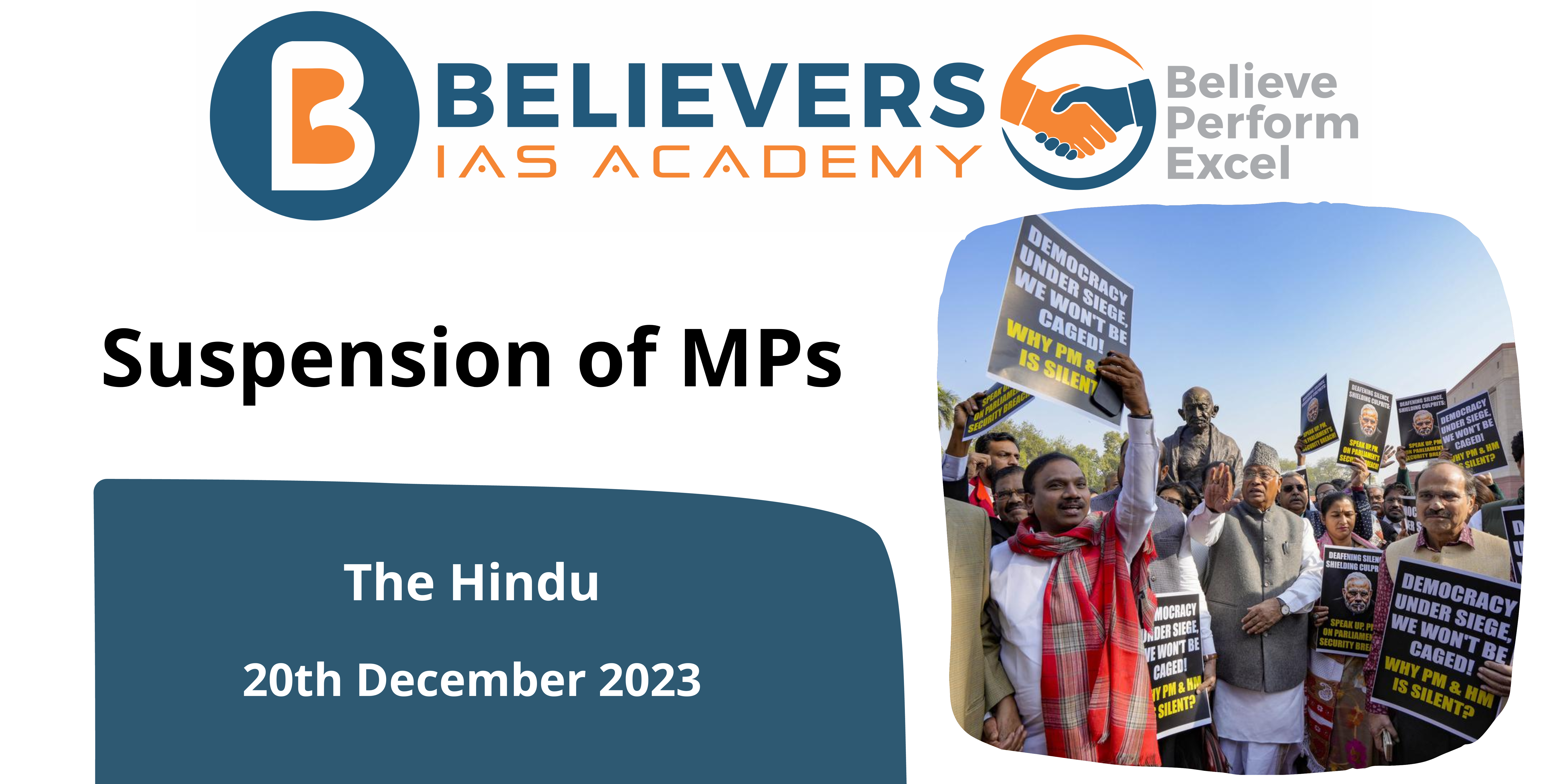Suspension of MPs
Context:
India’s Parliament suspended an additional 49 Lok Sabha MPs, escalating the total tally of sidelined Opposition lawmakers to 141 during this session.
Relevance:
GS-02 (Parliament, State legislature)
Process of Suspending Members of Parliament:
- At the core of parliamentary functioning, the power to suspend a member of parliament (MP) lies in the hands of the Presiding Officer — the Speaker of Lok Sabha and Chairman of Rajya Sabha — to uphold order for the smooth conduct of House proceedings.
- The authority is vested in them to compel a member’s withdrawal if their conduct disrupts the decorum.
Rules of Procedure and Conduct:
Lok Sabha:
- Rule 373: According to Rule 373, if the Speaker deems a member’s conduct as grossly disorderly, they can direct an immediate withdrawal. For more resistant cases, Rules 374 and 374A come into play.
- Rule 374: The Speaker, if necessary, may name a member for persistent obstruction. The House, on a motion, can then suspend the named member for the remainder of the session.
- Rule 374A: Introduced in 2001, this rule mandates automatic suspension for five consecutive sittings or the session’s remainder for severe violations, following the member’s naming by the Speaker.
Rajya Sabha:
- Rule 255: The Chairman can direct the withdrawal of a member exhibiting gross disorderliness. Unlike Lok Sabha’s Speaker, the Chairman lacks the power to suspend, requiring the House to decide on suspension via a motion.
- Rule 256: Empowering the Chairman to suspend a member for the session’s remaining duration.
Terms of Suspension:
- The maximum suspension duration is until the session concludes.
- Suspended members are barred from the chamber and committee meetings, lose notice-giving privileges, and forfeit the right to receive replies to their questions.
Implications:
- Erosion of Democratic Values: The suspension of a substantial number of Opposition MPs casts a shadow over democratic values, raising concerns about the fair representation of diverse voices within the legislative process.
- Strained Governance: The absence of a vibrant opposition challenges the system of checks and balances, potentially impacting the quality of debate and scrutiny in parliamentary affairs.
- Legislative Productivity vs. Chaos: The passage of Bills amid the chaotic backdrop raises questions about the efficacy of parliamentary proceedings during disruptions. The juxtaposition of legislative productivity against the turbulent atmosphere prompts introspection on the resilience of India’s parliamentary processes.
- Public Perception and Trust: Trust in the democratic institutions may face erosion if citizens perceive a lack of transparency, accountability, and a conducive environment for meaningful discourse.
- Diplomatic Implications: The global community often observes the functioning of democracies, and any perceived challenges to democratic norms can influence international perceptions of India.




